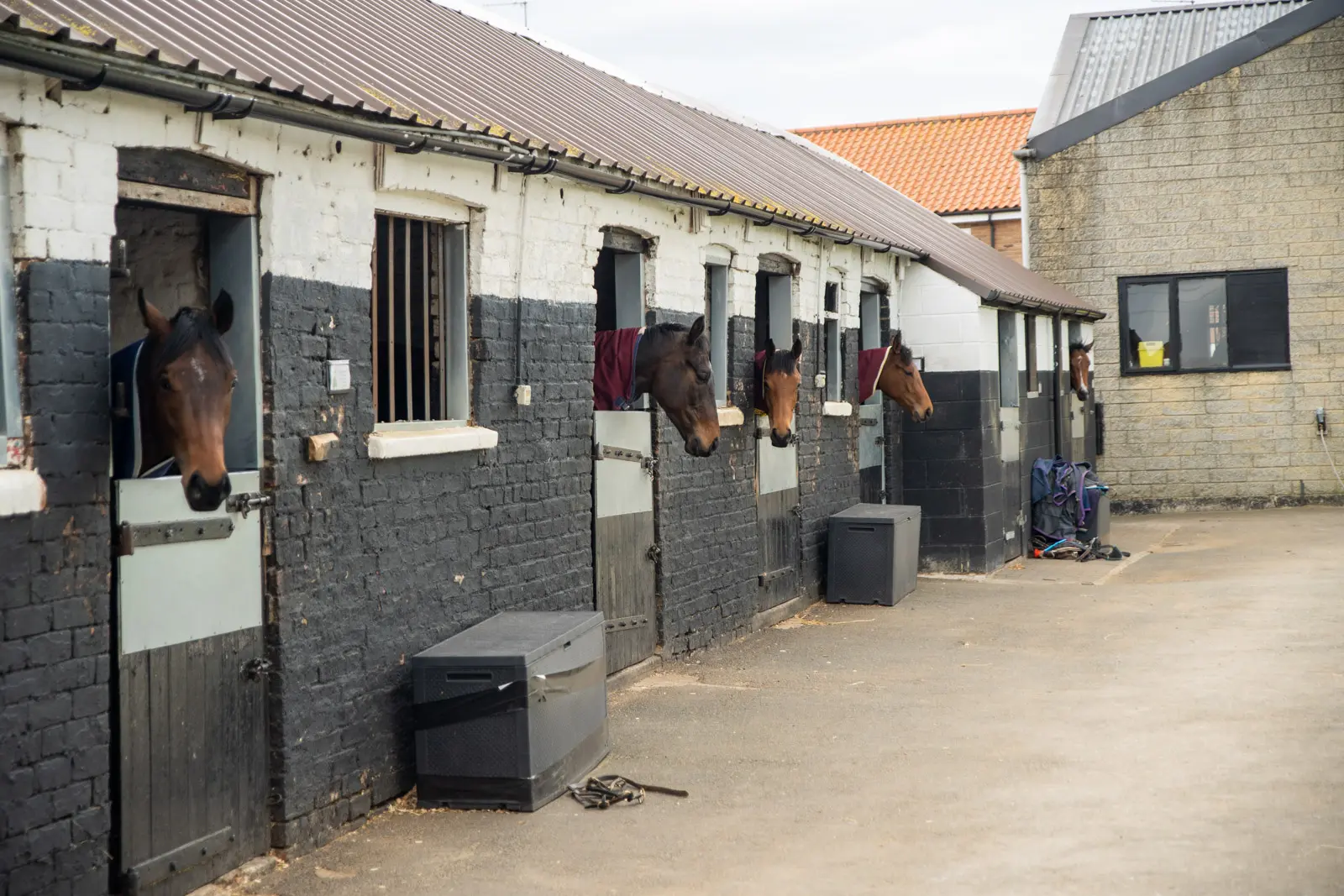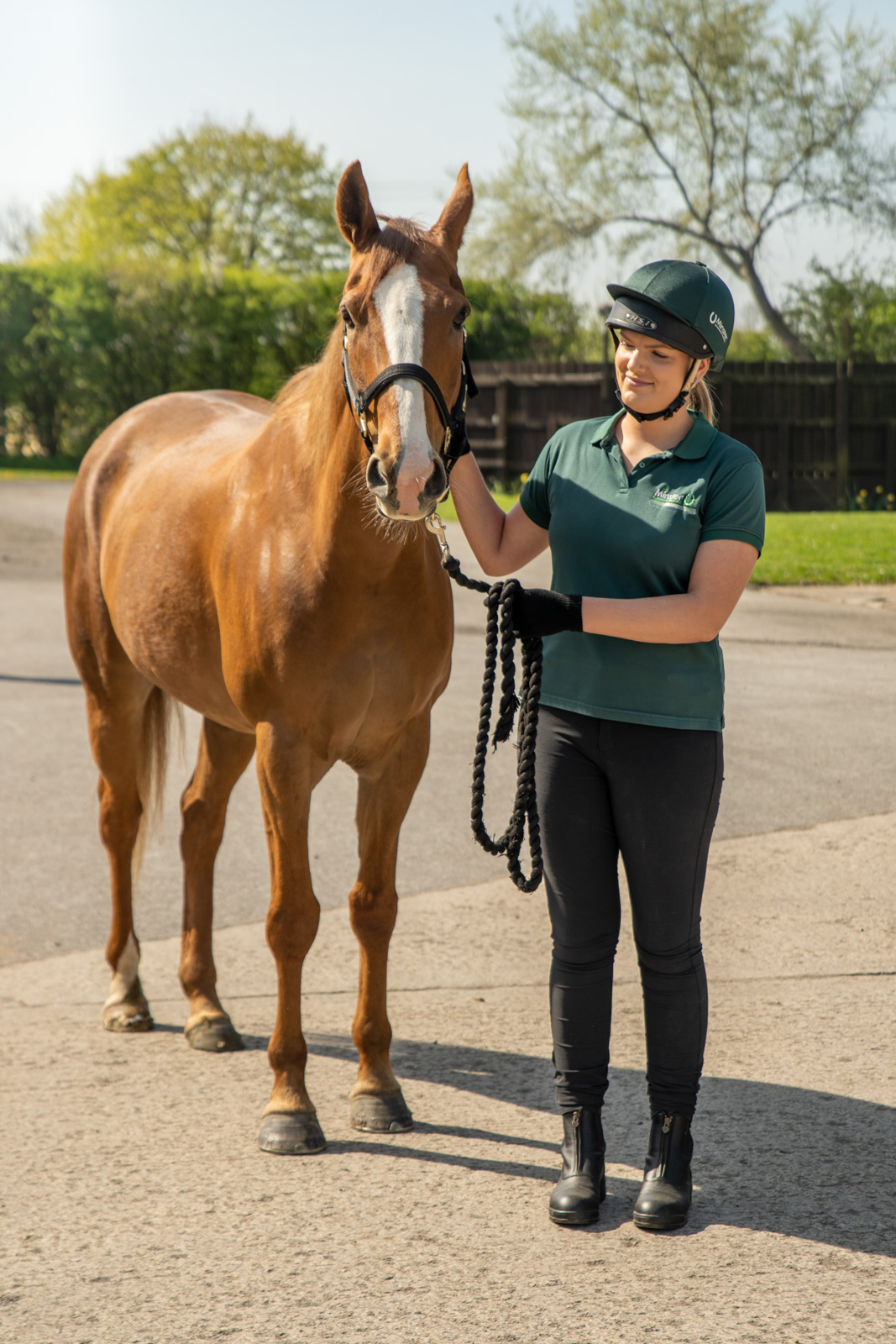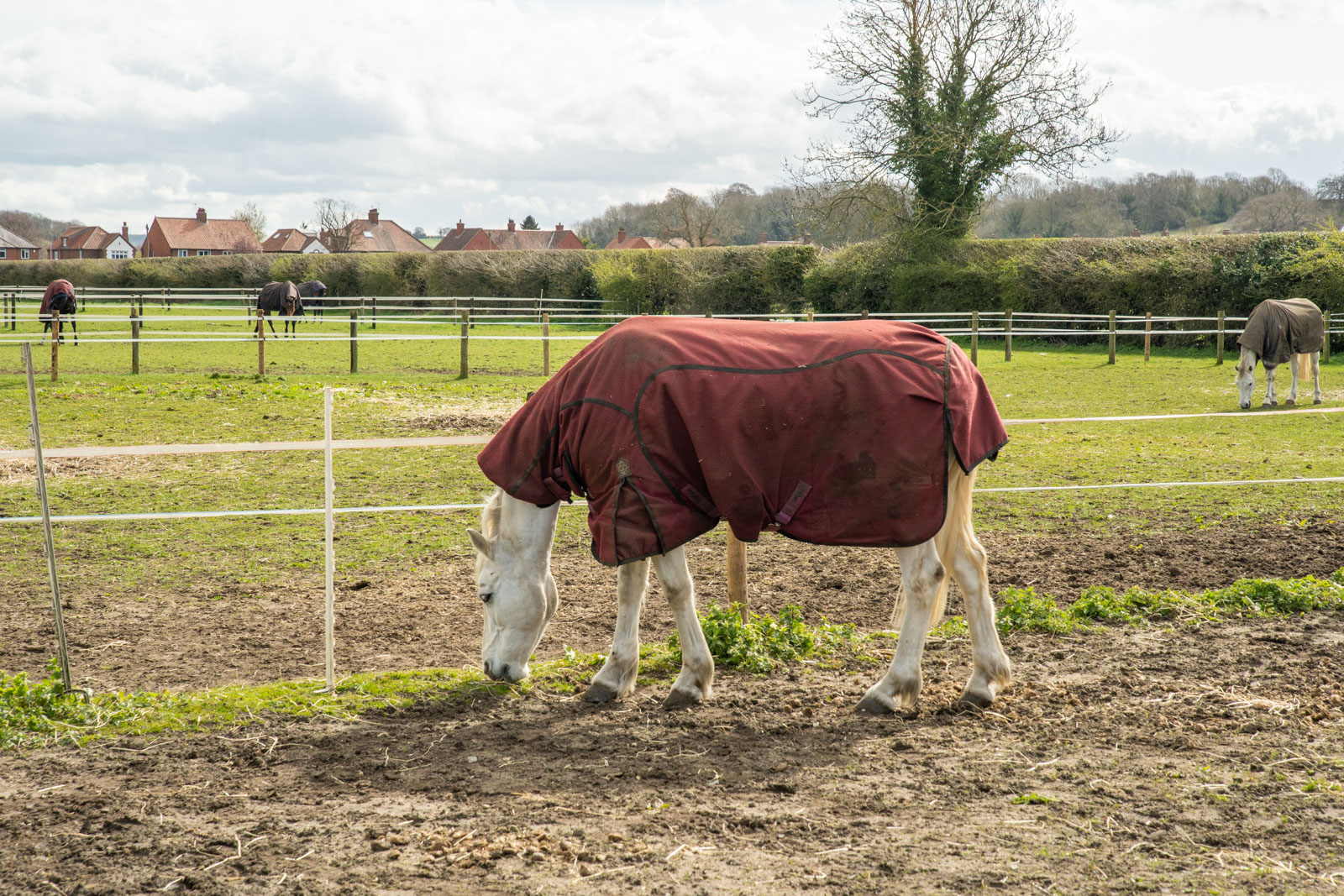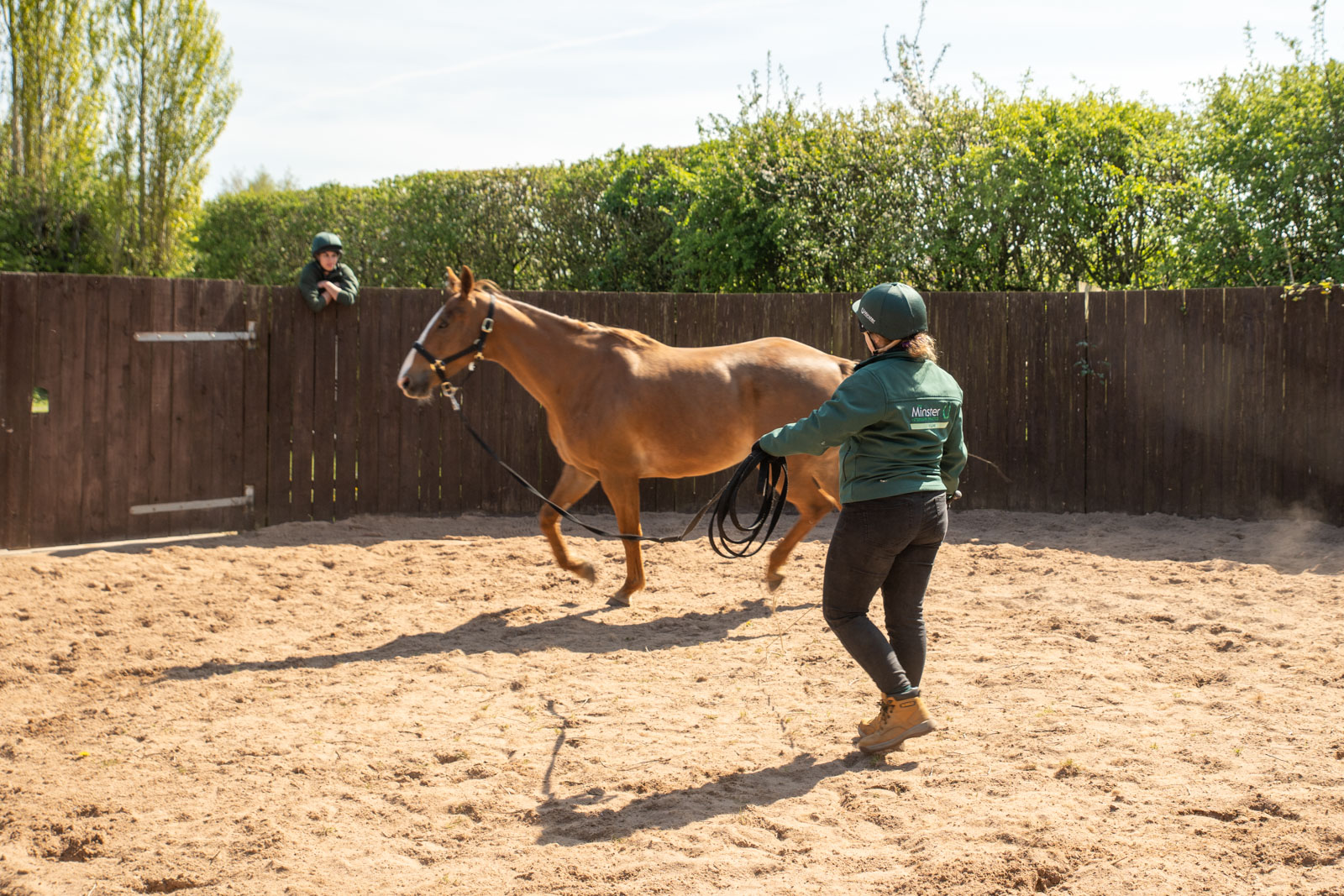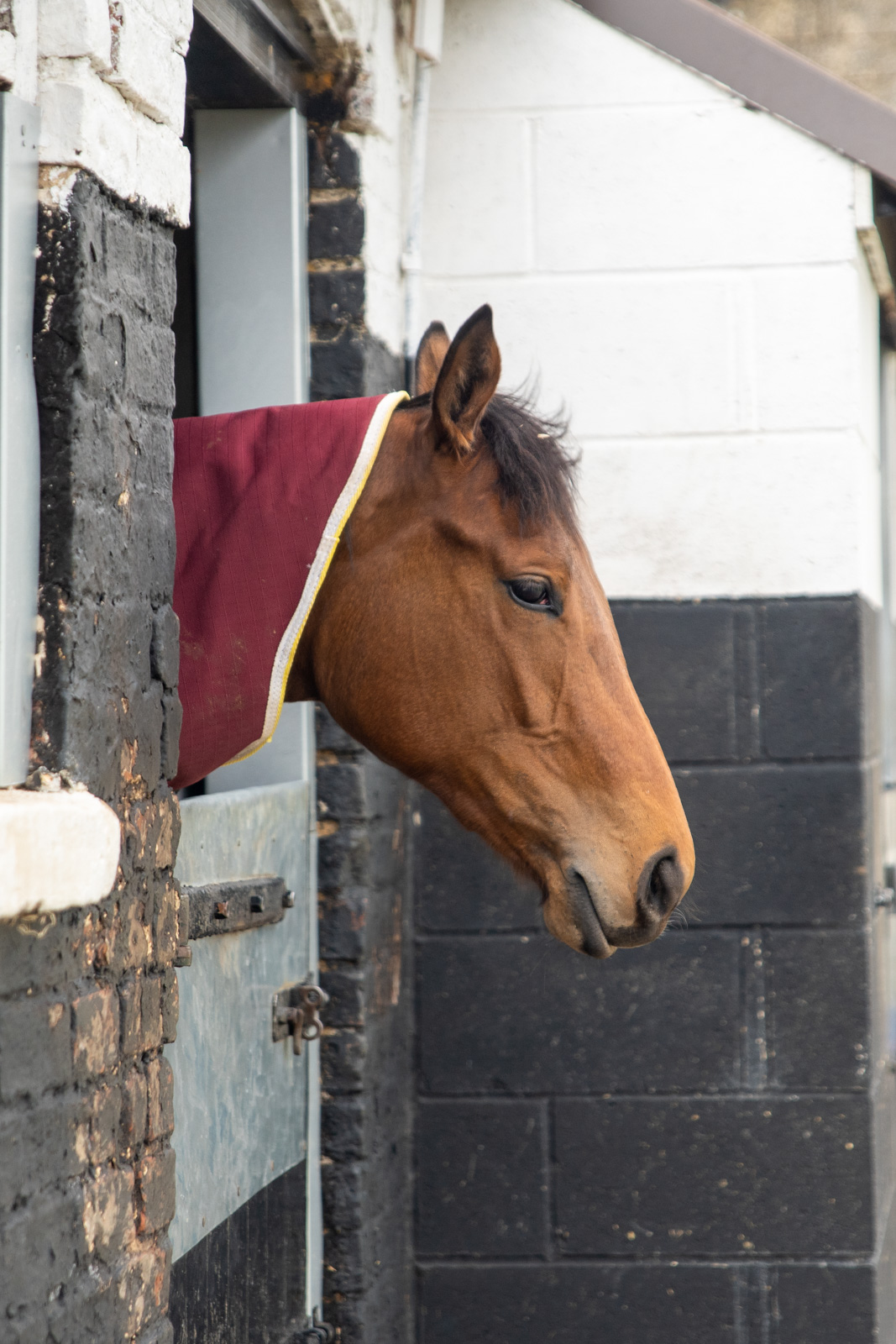Admissions
Admissions into the clinic
On arrival, please report to reception before unloading the horse to sign any consent forms. Please read through the information and if you have any questions please contact one of our branches.
If you think you are running late, please let us know.
What to bring
Upon admission to the practice for a procedure, your horse will receive the best possible care and attention from our dedicated vets, nurses and grooms.
Please remember to bring the following items for admission to the practice:
- Your horse’s passport (this is a legal requirement)
- Any drugs/supplements that you require your horse to have whilst with us
- Any feed that you wish your horse to have during their stay
- Appropriate rugs if your horse is staying with us
- A copy of your insurance claim form if applicable, with the owner’s section complete.
If you are uncertain of any insurance matters, please speak to a member of our reception team before your appointment.
You may leave any rugs you wish your horse to wear during their stay. We will label your horse’s belongings and store them securely ready for you to take home with you upon discharge.
Please specify on admission if your horse requires any specific care or any other information you think we need to know to enable us to look after your horse to the highest standard.
Upon admission to the practice for a procedure, your horse will receive the best possible care and attention from our dedicated vets, nurses and grooms.
Please remember to bring the following items for admission to the practice:
- Your horse’s passport (this is a legal requirement)
- Any drugs/supplements that you require your horse to have whilst with us
- Any feed that you wish your horse to have during their stay
- Appropriate rugs if your horse is staying with us
- A copy of your insurance claim form if applicable, with the owner’s section complete.
If you are uncertain of any insurance matters, please speak to a member of our reception team before your appointment.
You may leave any rugs you wish your horse to wear during their stay. We will label your horse’s belongings and store them securely ready for you to take home with you upon discharge.
Please specify on admission if your horse requires any specific care or any other information you think we need to know to enable us to look after your horse to the highest standard.
Admission for lameness
Ideally keep your horse in light work until the appointment date unless your veterinary surgeon has advised you otherwise.
If your horse is normally shod, please leave these shoes on. Unshod horses may become foot sore whilst being trotted up for the lameness examination, which could therefore complicate the diagnosis.
Any anti-inflammatory or pain killing drugs, such as bute and metacam, should be stopped at least 48 hrs before the horse’s appointment, (unless advised otherwise by the Veterinary Surgeon).
Lameness investigations can sometimes involve multiple days’ work. We will inform you if this is likely to be the case so that you can be prepared to leave your horse with us. Also, be aware that hospitalisation charges will be made from the day the horse arrives with us until the day the horse is discharged.
Ideally keep your horse in light work until the appointment date unless your veterinary surgeon has advised you otherwise.
If your horse is normally shod, please leave these shoes on. Unshod horses may become foot sore whilst being trotted up for the lameness examination, which could therefore complicate the diagnosis.
Any anti-inflammatory or pain killing drugs, such as bute and metacam, should be stopped at least 48 hrs before the horse’s appointment, (unless advised otherwise by the Veterinary Surgeon).
Lameness investigations can sometimes involve multiple days’ work. We will inform you if this is likely to be the case so that you can be prepared to leave your horse with us. Also, be aware that hospitalisation charges will be made from the day the horse arrives with us until the day the horse is discharged.
Trailers and lorries
We have ample room for parking and turning of large lorries.
You are welcome to leave your lorry or trailer at the clinic, just let us know. However, this will be left entirely at your own risk and The Minster Equine Veterinary Clinic hold no responsibility for loss or damage.
We have ample room for parking and turning of large lorries.
You are welcome to leave your lorry or trailer at the clinic, just let us know. However, this will be left entirely at your own risk and The Minster Equine Veterinary Clinic hold no responsibility for loss or damage.
Overnight patients
If your horse is staying with us overnight, they will be given ad-lib high quality hay or haylage and clean, fresh water at all times (unless there is a medical reason for us not to do so, for example if they are being fasted for a procedure). Your horse will be housed in a clean stable with shavings bed and will be thoroughly cleaned out in the morning and skipped out at regular intervals throughout the day. Horses are fed twice daily at 7am and 4pm, unless you give specific instructions, or feeding is contra-indicated. Standard feed includes:
- 1 Scoop Chaff
- Half scoop Nuts
- Half scoop Beet
Your horse will be checked at regular intervals throughout the day and night, and will have the following statistics recorded:
- Temperature
- Pulse
- Respiration
- Treatments
- Food and water intake
- Urine and faeces output
- Clinical signs; with timed and initialed entries.
If your horse is staying for more than three full days, they may be turned out in the turnout paddock if you consent for us to do so, unless there is a medical reason for us not to.
There will always be someone present on-site with any in-patients staying overnight.
As a minimum, every horse is checked overnight at 8pm, midnight, and 7am and more frequent checks and treatments are provided if required by the out of hours plan.
If you would like more information about the overnight care of your horse, please ask when your horse is admitted and your veterinary surgeon will be pleased to discuss this with you.
If your horse is staying with us overnight, they will be given ad-lib high quality hay or haylage and clean, fresh water at all times (unless there is a medical reason for us not to do so, for example if they are being fasted for a procedure). Your horse will be housed in a clean stable with shavings bed and will be thoroughly cleaned out in the morning and skipped out at regular intervals throughout the day. Horses are fed twice daily at 7am and 4pm, unless you give specific instructions, or feeding is contra-indicated. Standard feed includes:
- 1 Scoop Chaff
- Half scoop Nuts
- Half scoop Beet
Your horse will be checked at regular intervals throughout the day and night, and will have the following statistics recorded:
- Temperature
- Pulse
- Respiration
- Treatments
- Food and water intake
- Urine and faeces output
- Clinical signs; with timed and initialed entries.
If your horse is staying for more than three full days, they may be turned out in the turnout paddock if you consent for us to do so, unless there is a medical reason for us not to.
There will always be someone present on-site with any in-patients staying overnight.
As a minimum, every horse is checked overnight at 8pm, midnight, and 7am and more frequent checks and treatments are provided if required by the out of hours plan.
If you would like more information about the overnight care of your horse, please ask when your horse is admitted and your veterinary surgeon will be pleased to discuss this with you.


